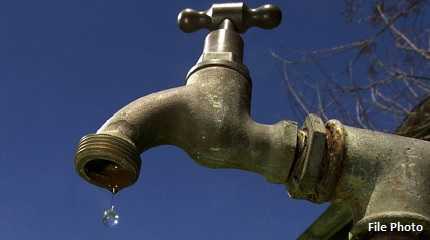
01 Apr 2023; MEMO: Tunisian authorities announced on Friday that they would begin cutting off drinking water for seven hours daily across the country to address the water scarcity and drought crisis.
This came in a brief statement issued by the government-owned Water Distribution Company, published on its official Facebook account, just hours after the Ministry of Agriculture announced a decision for a: "Temporary quota system and temporary restriction on some water uses in agriculture," according to Anadolu Agency.
The company stated: "Water will be cut off during the night, starting from 9 p.m. to 4 a.m., depending on the available water resources, with the possibility of adjusting the period for each region depending on water demand and the development of weather conditions, especially temperature levels."
The statement added that the decision: "Follows the Minister of Agriculture's decision on 29 March, 2023, adopting a temporary quota system and temporary restrictions for some water uses as part of dealing with the water shortage in the country starting from Friday, 31 March, and until the end of September 2023."
The Ministry of Agriculture explained: "It is forbidden to use potable water for washing cars, watering green spaces, and cleaning streets and public places. Violators of this decision will be punished with a financial fine (not specified) and imprisonment ranging from six days to six months. The law grants the authorities the right to suspend the connection to potable water provided by the water distribution company."
Tunisia is suffering from a water shortage crisis and a decline in dam reserves due to climate change and the three past years of drought that the country has experienced amid rising temperatures and a decrease in rainfall levels, which has affected the water levels in the dams.
Director-General of the Water Planning and Balancing Bureau at the Ministry of Agriculture Hamadi Al-Habib shared in a previous media statement that the quantities of water in the dams are "deficient", estimated at one billion cubic metres, equivalent to 30 per cent of the dams' absorption capacity in the country.




